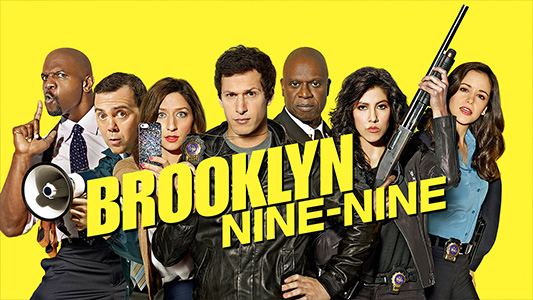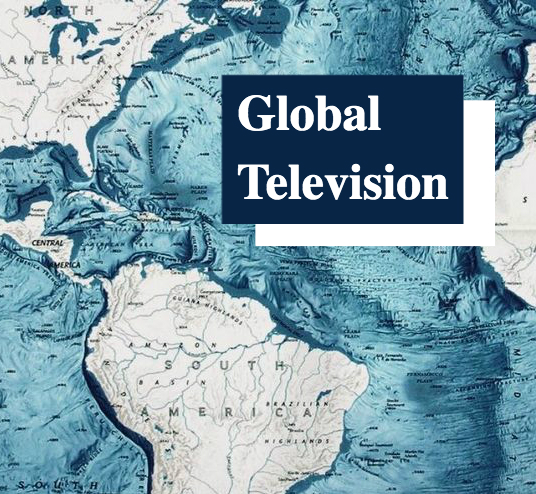Global television has become a way of the world due to the increased flow of communication between countries. Interestingly enough “Choosing National TV: Cultural Capital, Language + Cultural Proximity in Brazil” by Staubhaar, Joseph, D., highlighted that “modern interaction with mass media has produced identities that are already multilayered with elements that are very local, regional, and national” (Anderson, 1983).

This conveys that despite there being vastly different cultures mass media has lead to increased assimilation and understanding present between them. More specifically, audiences genuinely favour cultural proximity in which an element of ‘familiarity’ is present between the cultures. This makes sense when reviewing my own preferences in television as I subconsciously favour programs from America or the United Kingdom.

In particular, I enjoy the American sitcom Brooklyn Nine-Nine. The show follows a squad of NYPD detectives in Brooklyn’s 99th Precinct as the lovable and humorous characters solve crimes. As the show is set in America there are evident cultural similarities with Australia present. For example, the outfits, ethnicities, religion, language, values, lifestyle, gender images and humor all have an element of familiarity to them. In fact, none of these factors are unusual or confusing to me despite living in a different global environment as I can understand and relate to each aspect.
In comparison, if I were to view a Japanese game show I would most likely not enjoy the program. Differences in style, language, values, humour and lifestyle create a barrier of unfamiliarity which can make one feel like an outsider looking in. However, some individuals despite the contrast in cultural proximity would still be able to enjoy these types of shows because of their personal taste.


One American comedy show that I have watched from time to time is Family Guy. Although I am not a devoted viewer I wanted to discuss the show, due to its global issues. If you are unaware of Family Guy, it is an animation about a family that features controversial content. The show has been criticised as vulgar and has also had its fair share of disapproval.

Specifically, the show has been banned in a variety of countries including; South Africa, Russia, Malaysia, South Korea, India, Indonesia, Iran, Egypt, Taiwan, Vietnam and the Philippines (note: I could be missing some). This is also in addition to almost a dozen more countries that have banned individual episodes.
I think it is reasonable to say that the controversial nature of the show has had many countries deeming it unsuitable for air. Discussed in ‘Comparing the Australian Kath and Kim with the American One’, Sue Turnbull examines comedy and how it is received by different cultural audiences.

This being as there is a specificity to comedy dependent on each individual culture. Due to this specificity, comedy is not always interpreted accurately as understanding can get lost in translation. This is evident in relation to Family Guy as the cultures that have banned the show are more ‘consertive’ countries. These cultures have a greater focus on traditional values and don’t like progressive content that ‘pushes the envelope’ or defies the state. Hence, the disapproval.

Ultimately, it is evident that global television showcase vast differences held between cultures. Sometimes individuals or groups are able to overcome these dissimilarities however, other times the differentiation may lead to misunderstanding or displeasure surrounding the content.
LINKS:
Twitter: simplysez
Instagram: sarahcreecy
Youtube: Simply Sez
Thanks for reading, don’t be shy to leave a comment, like the post or even follow my blog. Any of the above is appreciated :))
References:
Comedy in Translation [online]. Metro Magazine: Media & Education Magazine, No. 159, 2008: 110-115. Availability: <https://search-informit-com-au.ezproxy.uow.edu.au/documentSummary;dn=873693742854368;res=IELAPA> ISSN: 0312-2654. [cited 10 Aug 19]
Elasmar, MG (ed.) 2002, The Impact of International Television : A Paradigm Shift, Routledge, Mahwah. Available from: ProQuest Ebook Central. [10 August 2019].
Turnbull, Sue. ‘It’s Like They Threw a Panther in the Air and Caught It in Embroidery’: Television Hodges, C. (2017). 15 TV Shows You Didn’t Know Were Banned In Other Countries. [online] ScreenRant. Available at: https://screenrant.com/tv-shows-banned-in-other-countries-shocking/ [Accessed 11 Aug. 2019].

Leave a comment